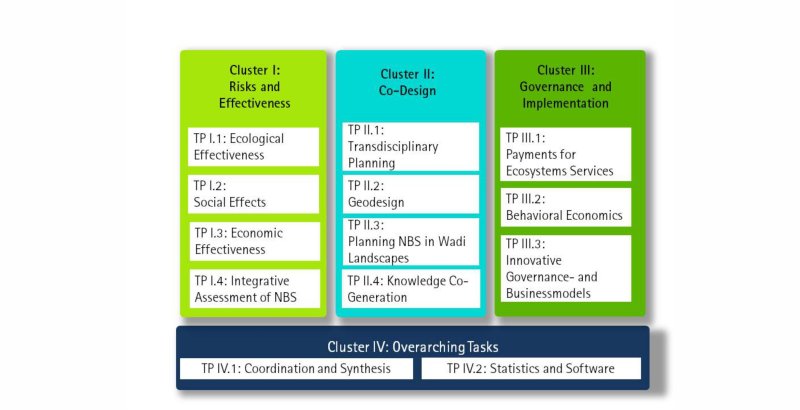
PlanSmart
PlanSmart is structured in four project clusters and eleven subprojects.
The cluster I: ‘Risks and Effectiveness’ will generate system knowledge on water-borne challenges and the effects of nature-based solutions, also in comparison with technical alternatives.
The cluster II: ‘Co-Design’ concerns transdisciplinary planning of nature-based solutions for the generation of target and transformation knowledge, as well as the identification, development and testing of methods for the co-generation and transfer of knowledge.
The cluster III: ‘Governance and Implementation’ focus on the development of transformation knowledge and deals with payments for ecosystem services and other innovative governance and business models.
The cluster IV: ‘Overarching Tasks’, the cooperation within the research group members and with external partners is coordinated, a project-internal evaluation is implemented, and the synthesis of the findings and their dissemination will be organized.